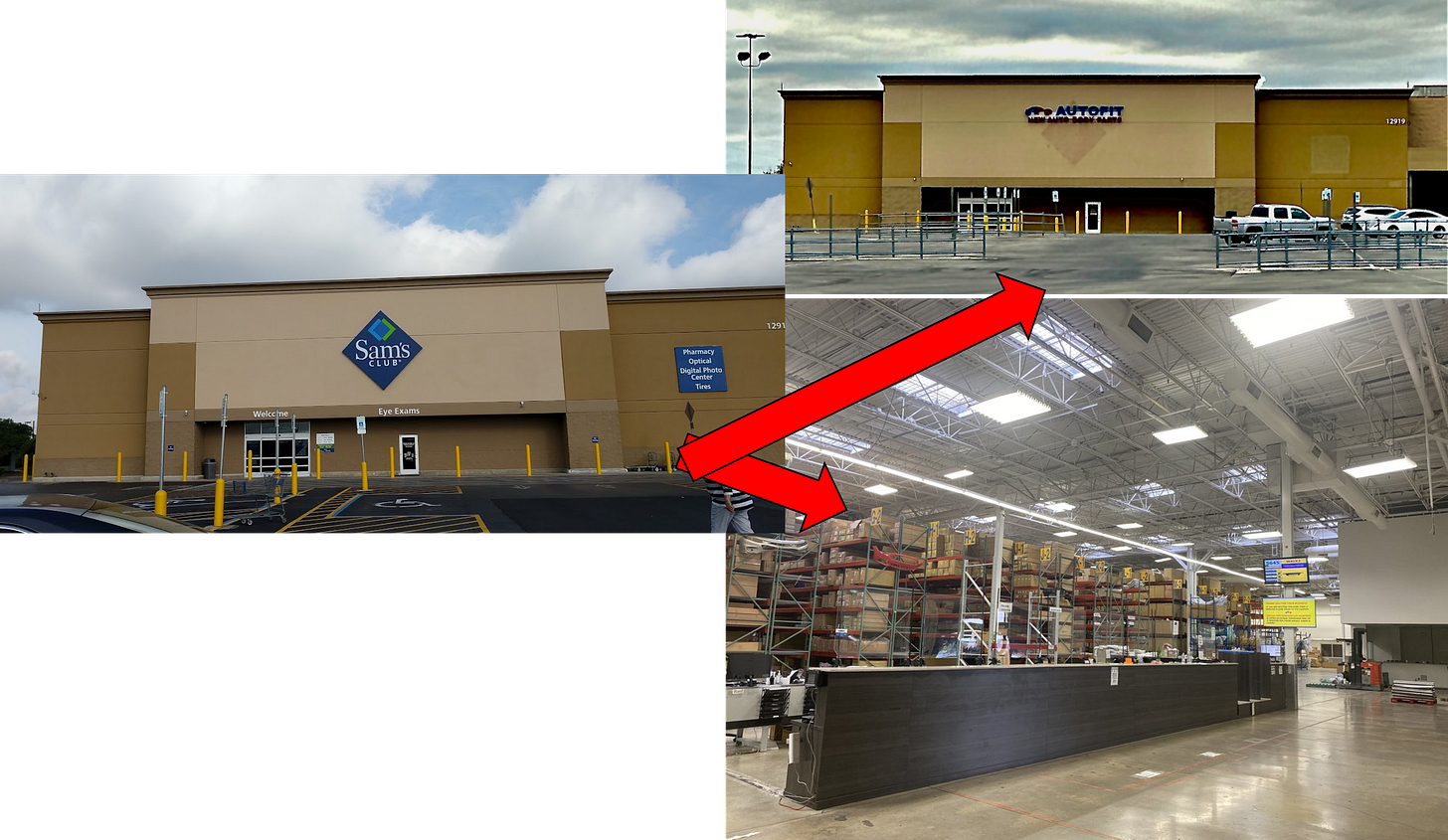Market Hubs In Repurposed Big Box Suites Are Fueling Store Growth For Advance Auto Parts
Advance Auto Parts plans to triple the number of its Market Hub stores over the next 3 years largely by repurposing space vacated by bankrupt Big Box retailers
Advance Auto Parts AAP 0.00%↑ reported strong Q1 2025 results this morning.
The strong performance was due in part to the comparable sales lift that Advance Auto received from its 21 Big Box Market Hub stores.
Advance Auto Market Hubs are as large as ~35,000 square feet — or ~5x the size of a standard Advance Auto store — and are located in “2nd generation" Big Box real estate that was once home to other retailers.
Market Hubs carry between 85,000 and 90,000 SKUs and serve not only as retail stores but also as mini-distribution centers that supply same day parts to up to 90 Advance Auto stores in a service area.
Company executives commented that stores in areas with a Market Hub generated a comparable sales uplift of ~100 basis points last quarter.
Now Advance Auto plans to accelerate development of additional sites.
Another 10 Market Hub stores are expected to open by the end of the year and Advance Auto hopes to have 60 by 2027.
The majority of Market Hubs will be located in vacant Big Box real estate.
Including sites vacated by recently-bankrupt retailers.
Like an Advance Auto Parts Market Hub that is opening later this year in Stone Mountain, Georgia.
In a ~35,000 square foot Big Box space that had been occupied by Conn’s Home Plus until the furniture retailer filed for bankruptcy last year.
Earlier Market Hub stores were not quite as large.
Like the Advance Auto hub in Harrisburg, PA that opened in 2021.
It took space that was vacated by Get Air Trampoline Park in 2020 — and had once been occupied by Office Max more than a decade ago.
But at ~24,000 square feet it is ~1/3 smaller than the new Market Hub that is opening in Georgia.
While Market Hub expansion may be relatively recent for Advance Auto Parts, its competitors have been operating hub stores for years.
AutoZone, the largest auto parts supply retailer in the U.S. with over 7,000 locations, has over 100 “Mega Hubs” across its network of stores.
AutoZone Mega Hubs are 20,000 - 30,000 square feet and can carry over 100,000 parts.
Even though Mega Hubs make up less than 2% of AutoZone’s U.S. store base, they represent an outsize share of the Company’s new store development.
AutoZone plans to open 19 Mega Hubs over the next 6 months which are expected to comprise roughly 1/2 of its new U.S. store openings during that period.
Most Mega Hubs are in "2nd generation" real estate vacated by Big Box retailers — and ~10% are repurposes of former Toys R Us and Kmart properties.
O’Reilly Auto Parts, the #2 auto parts supply retailer in the U.S. with over 6,000 locations, has approximately 385 hub stores in its network.
The O’Reilly hub stores are 14,000 square feet on average, or roughly twice the size of its standard ~7,000 square foot store.
But O’Reilly has also recently introduced Super Hub Stores to its network.
Super Hubs are much larger than previous O’Reilly hub stores and are typically located in densely populated areas and major MSAs throughout the country.
Like its rivals, O’Reilly is also repurposing vacant Big Box retail space for use as Super Hubs.
For instance, last year O’Reilly opened 50,000 square foot Super Hub stores in a Littleton, Colorado shopping center in a space that was previously occupied by a furniture retailer.
And in a 42,000 square foot building in Merrillville, Indiana that was formerly home to a Big Box retailer.
The recent bankruptcies of Big Box retailers like Conn’s, Big Lots and Joann Stores will likely free up over 2,000 sites that may be suitable for repurpose as Advance Auto Market Hubs.
But even larger Market Hub stores could be in Advance Auto’s future.
In fact other auto parts companies have already completed the adaptive reuse of larger 2nd generation properties for hub sites.
Like Autofit, a wholesale auto parts supplier, that recently opened in a ~140,000 square foot property:
A former Sam’s Club building in San Antonio, Texas.










